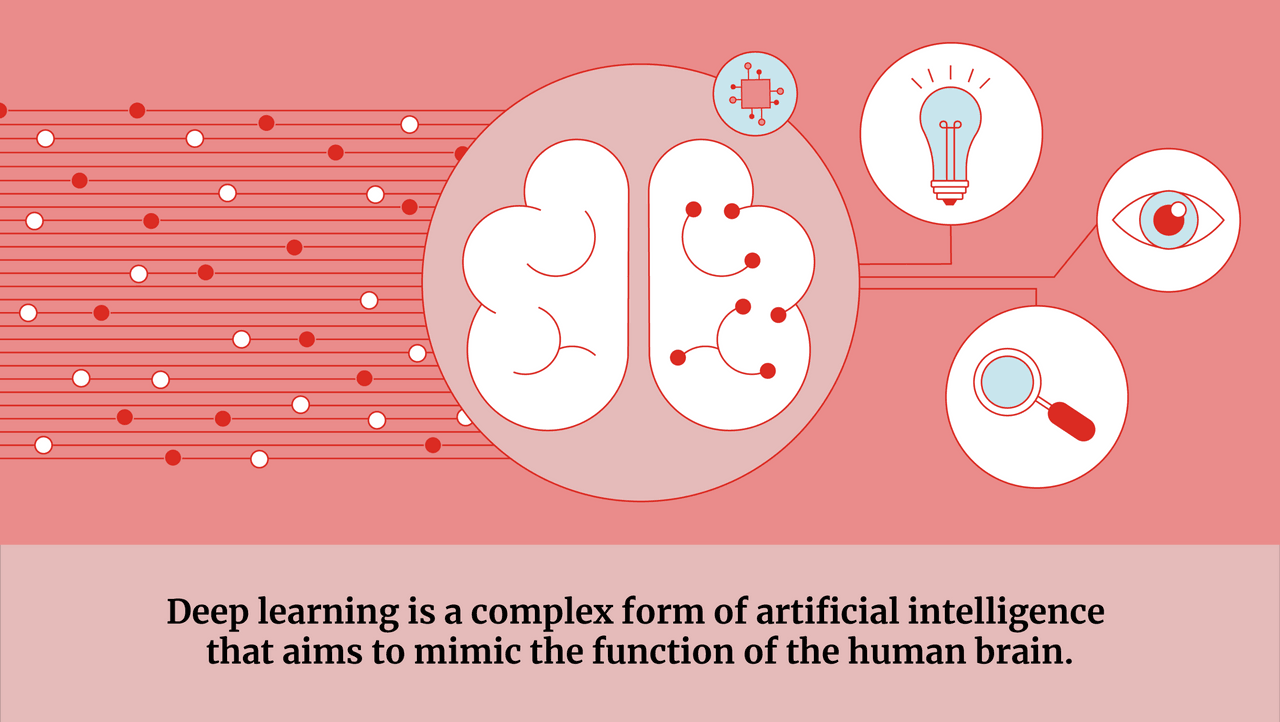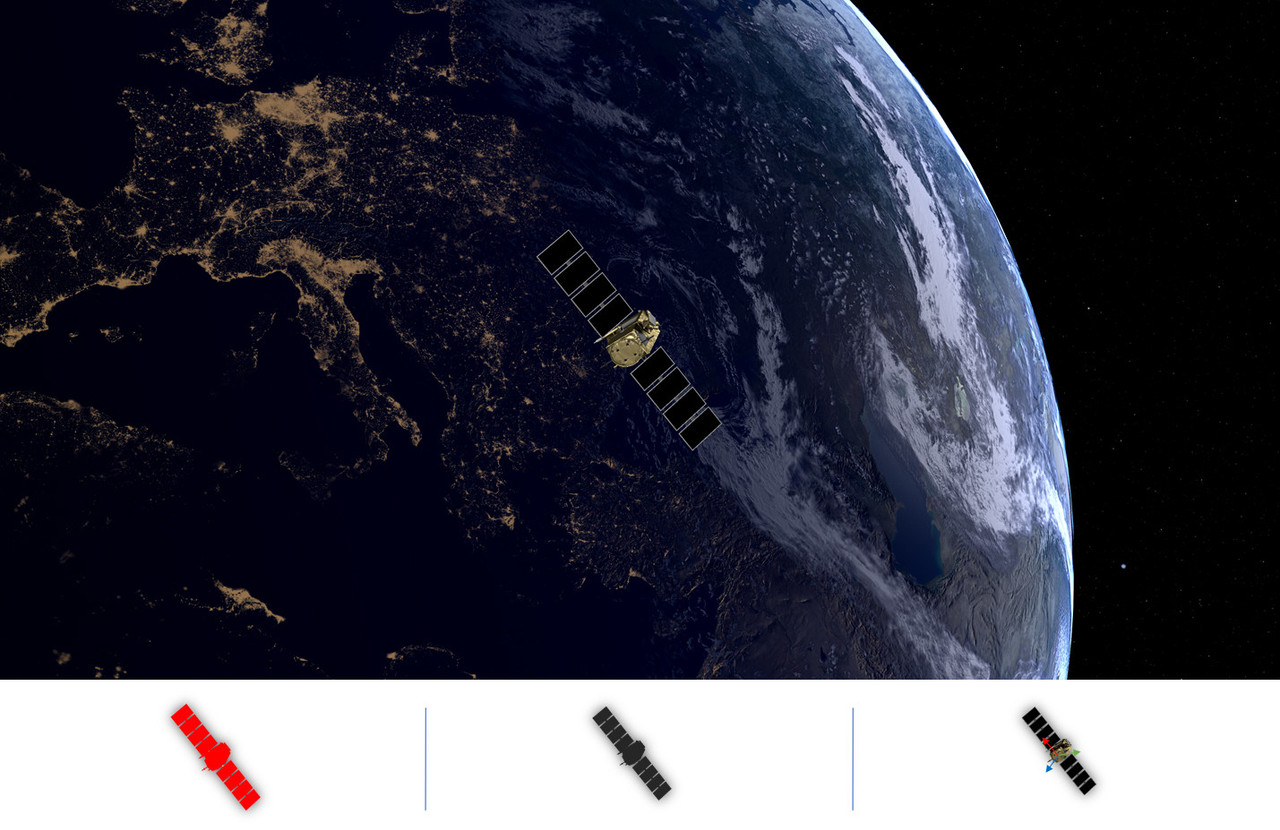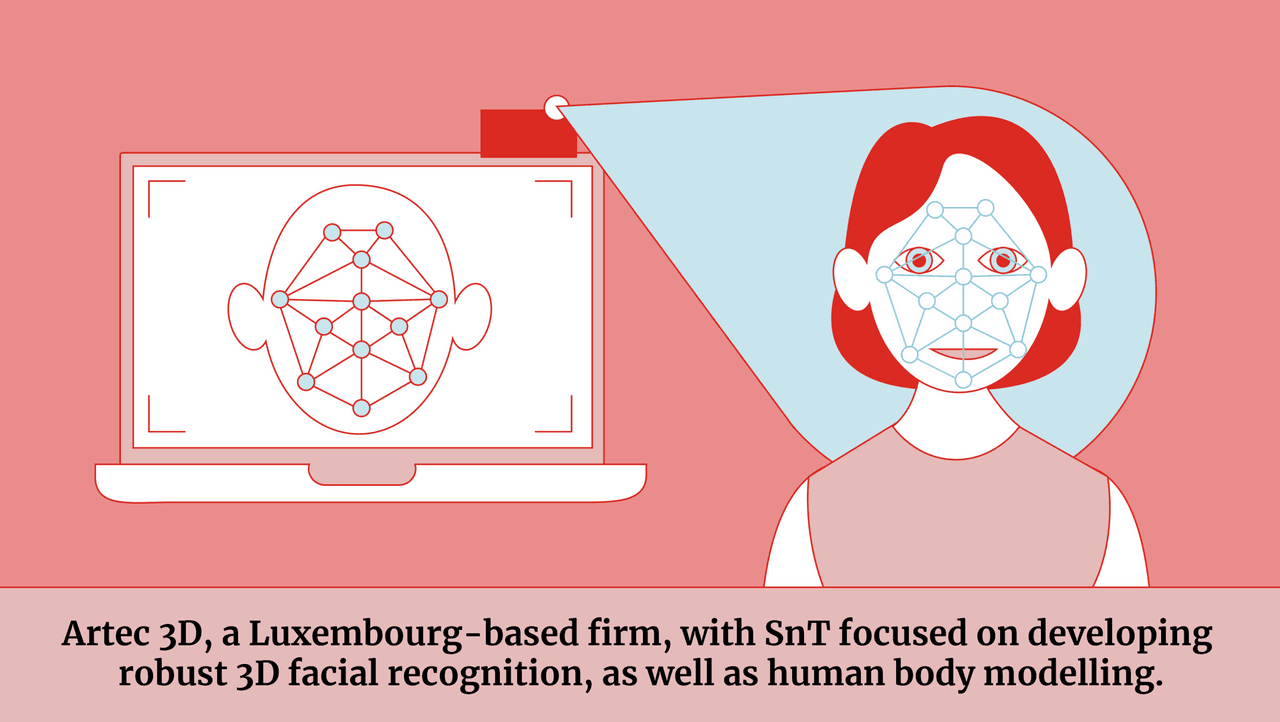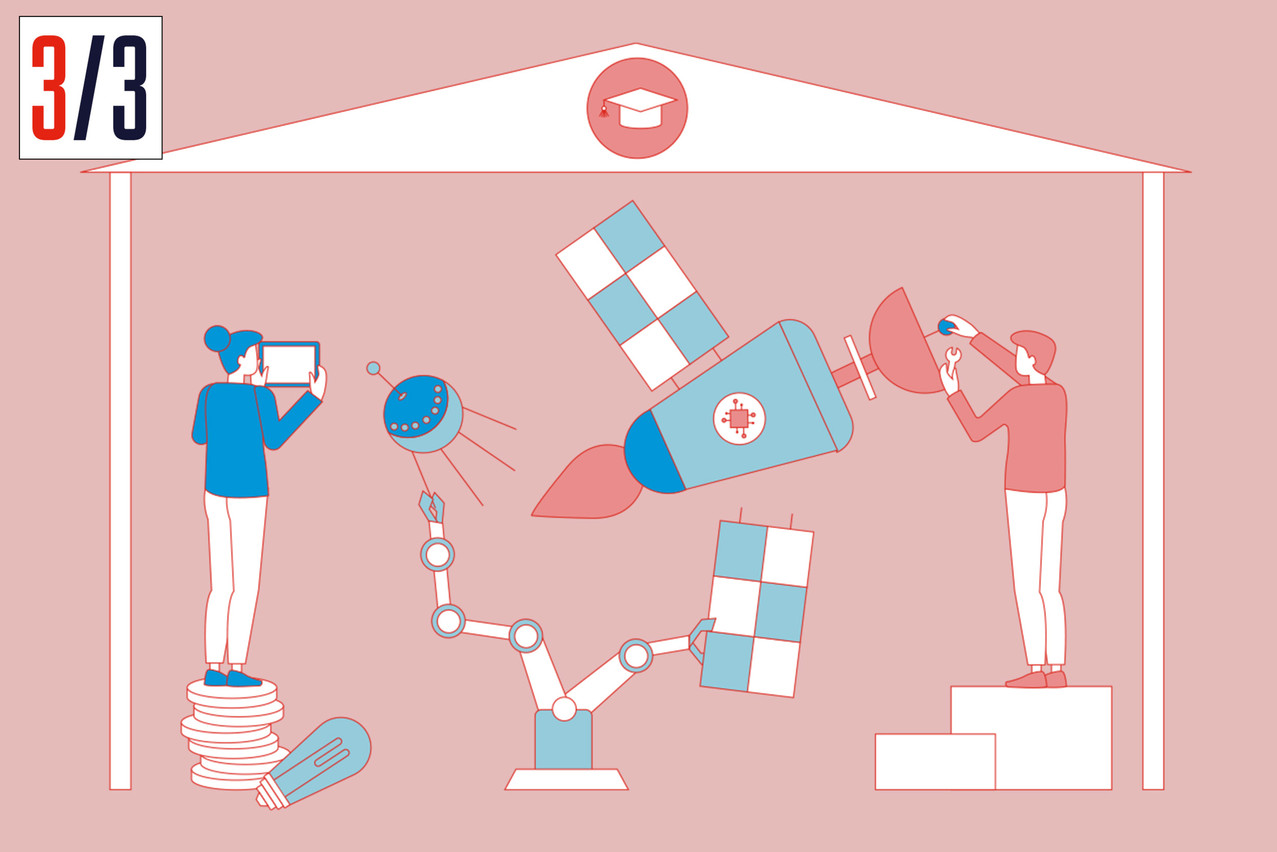Passionate about enabling companies to develop their space ambitions is from the (SnT) – a research centre within the University of Luxembourg. Their partnerships with companies within Luxembourg’s space industry include veterans of the field, , as well as , and . Prof. Aouada has been leading the computer vision activities at SnT since 2009, and is head of the (CVI2) research group, head of the and co-head of the .
Her team, much like the rest of SnT, is comprised of a highly interdisciplinary approach – and one that is absolutely necessary to succeed in space projects. With input needed on materials science, structural engineering, manufacturing and robotics, alongside her main area – computer vision – addressing these projects from all angles gives a strong advantage to both start-ups and established entities. “For start-ups especially, having a team that encompasses all of these competencies from the get-go would be very difficult. Offering the ability for them to partner with us to have access to wider expertise not only enables them to fill their missing fields, but also allow them to focus their efforts on their main in-house specialty,” said Prof. Aouada.
Eyes on the Stars
When starting a business, the awareness that you’re making high-risk decisions can be a continual realisation. Having a partner that’s attuned to what the future of space will look like can allow you to chase real breakthroughs, by steering research in the right direction. A company her research group works closely with through an industrial partnership is Lift Me Off (LMO). Originally founded in the UK, they’re a start-up dedicated to supporting a safe and sustainable use of space by exploring the realms of autonomous, in-orbit satellite services.
LMO has expertise in electronics, hardware and propulsion, while SnT provides support in the areas of artificial intelligence and computer vision, to achieve their ambitions.
Within their collaboration, they have developed the SPARK simulator for orbital space sensing. Prof. Aouada describes this development as one of the most important contributions to Luxembourg’s space industry. Officially owned by SnT, it has the capacity to have a great impact on the sector, with broad application potential in future partnerships. “This application has enabled us to progress to designing deep learning algorithms for space applications,” she said. Deep learning is a complex form of artificial intelligence that aims to mimic the function of the human brain, by processing data in a way that enables the programme to develop, learn and apply patterns to its decision making.

Deep learning is the closest form of human intelligence. (Illustration : Maison Moderne)
This application also includes target recognition in the critical area of space debris, as well as the complex business of position estimation. “Having situational awareness is a very important aspect for work in space, as you need to detect and recognise your target autonomously.”
World-Class Facilities
After working with simulated data, the next stage of research involves working with lab-acquired data. SnT’s newest space lab, the Zero-G Lab, is making this a possibility, with the ultimate goal of transferring their algorithms into space. The Zero-G Lab simulates zero gravity using similar technology to that of an air-hockey table. It will be a vital testing ground for partners, but will also allow the researchers to test how in-orbit servicing would operate – a focal point of the space sector in today’s times.

SPARK simulator for orbital space sensing: example of the generated data. (SnT)
They also work with , a division of Luxembourg’s national telecommunications operator. As part of a project, Prof. Aouada and her research group are working on using data from the global navigation satellite system (GNSS) to explore new fields of data authentication. Their work has also delved into detecting the manipulation of videos, designing solutions for deep fake detection. In fact, they have just been awarded funding from the through the programme to support this activity further.
Down to Earth
These projects amongst the stars would not have been possible without the team’s wealth of experience building Earth-based applications over the last 12 years. This specialty has helped companies apply computer vision and artificial intelligence to terrestrial-focused work, and has allowed them to begin transferring knowledge to the space sector. One of their oldest partners is Luxembourg-based firm . Specialised in computer vision in their manufacturing of cameras and scanners, their work with SnT focused on developing robust 3D facial recognition, as well as human body modelling.

Artec 3D and SnT partnered to develop 3D facial recognition tools. (Illustration : Maison Moderne)
With their activities both land-based and in space continually growing, the research group is actively looking for a partner that is specialised in space remote sensing and Earth observation. “Our technology and expertise in image processing and analysis needs the right use case for us to apply it to. We are very interested to find a partner that wishes to develop their competence in this area, or are looking for expertise that we can share with them,” said Prof. Aouada.

